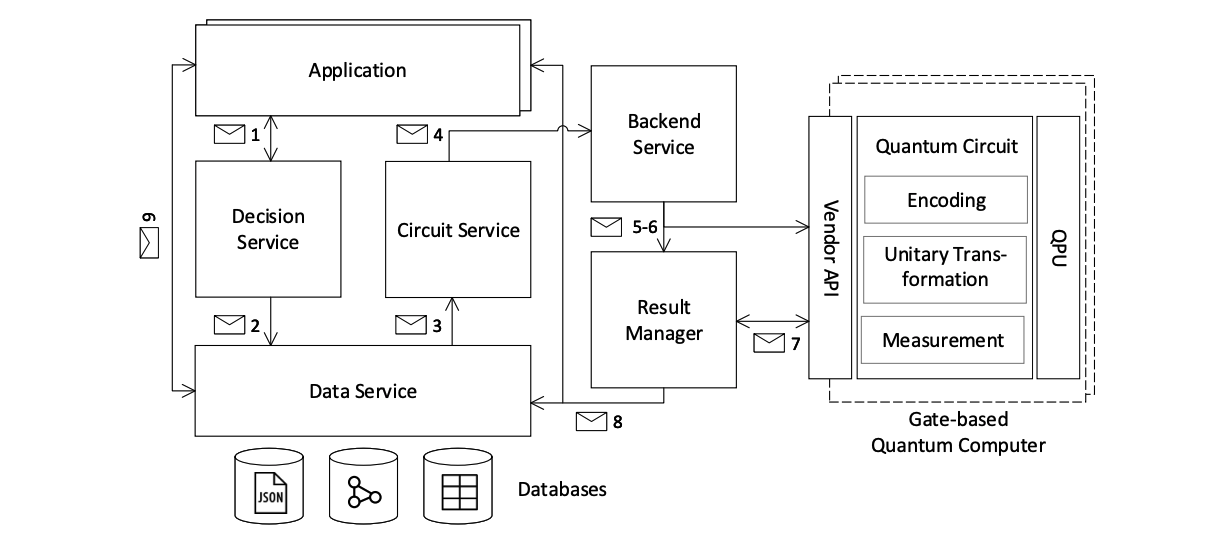The Hybrid Data Management Architecture (HDMA) is a system developed by Markus Zajac and Uta Storl from Fern Universitat in Hagen, Germany, to facilitate data exchange between applications, databases, and quantum computers. The HDMA addresses the challenge of loading data into quantum computers, which cannot directly access databases. It provides a framework for researching and piloting suitable encoding methods for data in different structures and models. The architecture also serves as a platform for designing future data-centric applications for quantum computing. Despite being in the early stages of development, the HDMA could play a crucial role in advancing quantum computing.
What is the Hybrid Data Management Architecture for Quantum Computing?
The Hybrid Data Management Architecture (HDMA) is a proposed system that facilitates the exchange of data between applications, databases, and quantum computers. The architecture was developed by Markus Zajac and Uta Storl from the Databases and Information Systems department at FernUniversitat in Hagen, Germany. The HDMA is designed to act as a framework for researching and piloting appropriate encoding methods for data in different structures and models. It also serves as a platform for designing future data-centric applications for quantum computing.
Quantum computers have the potential to perform certain calculations much faster than classical computers. They can be used in various application areas such as optimization, machine learning, or search algorithms. Depending on the problem, a polynomial or exponential acceleration can be assumed compared to a classical computer. However, for practical use, certain hurdles must be addressed.
One of the main challenges is the loading of data into quantum computers. Quantum computers cannot access databases directly. Moreover, today’s quantum algorithms assume its input data is already in the desired form. The data to be processed has therefore first to be encoded in a suitable way in order to be used on a quantum computer at all. The encoding must reflect the structure of the data, for example when data is organized hierarchically in trees or semi-structured in documents. Efficient encoding of data is a challenge, as well as a future research direction.
How Does the Hybrid Data Management Architecture Work?
The HDMA is designed to address the challenges associated with loading data into quantum computers. It provides a framework for researching and piloting appropriate encoding methods for data in different structures and models. The architecture also serves as a platform for designing future data-centric applications for quantum computing.
The HDMA works by enabling the exchange of data between applications and databases and quantum computers. It acts as a bridge between these different systems, allowing data to be transferred and processed efficiently. The architecture is designed to reduce and manage complexity, making it easier for developers to work with quantum computing systems.
To validate the architecture, the researchers performed experiments in which they assigned data points stored in a database to clusters. For cluster assignment, a quantum algorithm processes this data by determining the distances between data points and cluster centroids. This experiment served as a proof of concept for the HDMA, demonstrating its potential for practical use.
What are the Implications of the Hybrid Data Management Architecture?
The development of the HDMA has significant implications for the field of quantum computing. By providing a framework for researching and piloting appropriate encoding methods for data, the architecture could help to overcome one of the main challenges associated with quantum computing: the loading of data into quantum computers.
The HDMA could also pave the way for the development of future data-centric applications for quantum computing. By facilitating the exchange of data between applications, databases, and quantum computers, the architecture could enable new types of applications that take full advantage of the capabilities of quantum computing.
However, it’s important to note that the HDMA is still in the early stages of development. The researchers have validated an early prototype of the architecture, but further research and development will be needed to fully realize its potential. Despite these challenges, the HDMA represents an important step forward in the field of quantum computing.
What is the Future of the Hybrid Data Management Architecture?
The future of the HDMA is promising, but there are still many challenges to overcome. One of the main challenges is the development of efficient encoding methods for data. This is a complex task that requires a deep understanding of both data structures and quantum computing.
Another challenge is the development of workflows and interfaces for data exchange between classical systems and quantum computers. This is a critical aspect of the HDMA, as it enables the architecture to act as a bridge between these different systems.
Despite these challenges, the researchers are optimistic about the future of the HDMA. They plan to continue their research and development efforts, with the goal of further refining the architecture and expanding its capabilities. With continued progress, the HDMA could play a key role in the advancement of quantum computing.
How Does the Hybrid Data Management Architecture Relate to Other Research in Quantum Computing?
The HDMA is part of a broader field of research into quantum computing. Other researchers have also been exploring ways to optimize queries and transaction plans using quantum algorithms. There is also ongoing research into the development of hybrid algorithms for database problems.
The HDMA is unique in its focus on data management for quantum computing. By providing a framework for researching and piloting appropriate encoding methods for data, the architecture addresses a critical challenge in the field of quantum computing. The researchers’ work on the HDMA contributes to the broader effort to make quantum computing more practical and accessible.
Publication details: “Hybrid Data Management Architecture for Present Quantum Computing”
Publication Date: 2024-03-12
Authors: Markus Zajac and Uta Störl
Source: arXiv (Cornell University)
DOI: https://doi.org/10.48550/arxiv.2403.07491

